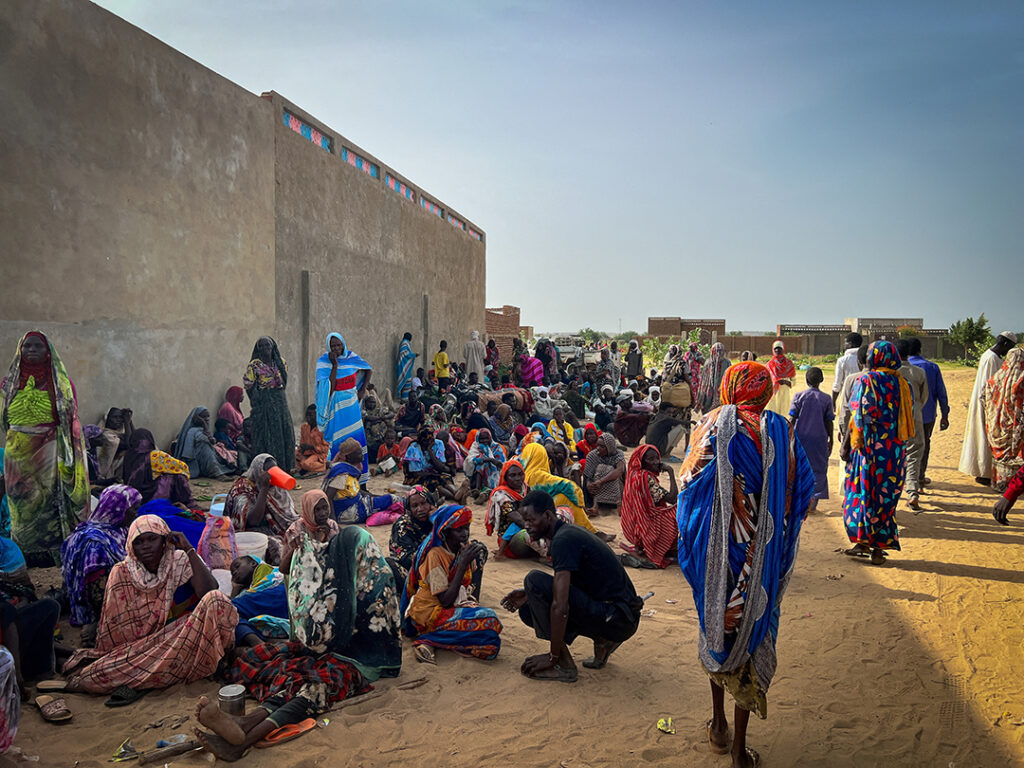ADF STAFF
As masses of Sudanese citizens attempt to flee from violence across the border to Chad, members of the Masalit ethnic group report that gunmen are blocking them from leaving.
“The militiamen ask those fleeing about their tribal background,” one unidentified woman told Radio Dabanga recently. “Masalit are not allowed to cross the border to Chad.”
Members of other ethnic groups may cross after inspections. More than 10 militia checkpoints line the road between El Geneina, the capital of West Darfur, and the Chadian border. Along the way, gunmen are reportedly taking mobile phones and money from those who are fleeing.
The Darfur region is a complex mosaic of Arab and non-Arab ethnic groups and clans. In West Darfur, the main ethnic groups are the majority Masalit, as well as the Eringa, the Gimir, the Misseriya Jebel, and the Zaghawa.
Several groups, including the Masalit, straddle the Chad-Sudan border, leading some observers to worry that ethnic rivalries in Sudan could spread to Chad.
West Darfur’s mix of ethnicities has driven conflict for decades. Former dictator Omar al-Bashir exploited those divisions during his rule, ultimately unleashing Arab Janjaweed on the non-
Arab groups in a genocidal campaign of violence two decades ago.
Al-Bashir’s rival successors — Gen. Abdel Fattah al-Burhan, head of the Sudan Armed Forces (SAF), and the general commonly known as Hemedti, leader of the Rapid Support Forces (RSF) — are using the same playbook as they expand their ongoing battle for supremacy through Darfur’s historic tribal animosities and clan rivalries.
In Khartoum, SAF soldiers have targeted young Misseriya tribesmen that they consider to be RSF supporters.
Hemedti is a member of the Mahariya branch of the Rizayqat Arab ethnic group. The RSF, which emerged as the successor to the Janjaweed, is primarily made up of Abbala and Baggara Arabs who are camel and cattle herders from the Darfur region. The Baggara include the Rizayqat as well as the Fur people, for whom the region is named. The Masalit refer to the region as Dar Masalit.
As tensions between al-Burhan and Hemedti grew earlier this year, al-Burhan approached former Janjaweed leader and Hemedti rival Musa Hilal and members of his Mahamid clan of Rizayqat to support his efforts in Darfur.
After fighting broke out between al-Burhan and Hemedti in Khartoum, battles erupted 10 days later in Darfur, where Hemedti has his headquarters. Ethnic groups quickly armed themselves and formed their own defense forces.
“The security situation in Khartoum poses a lot of threats to the people of Darfur because nobody is around to control these [Arab] militias,” Ahmed Gouja, a local journalist and human rights monitor told Al Jazeera at the time.
The fighting in Darfur pitched the RSF against local groups rather than the SAF. Among the victims of the violence was West Darfur Gov. Khamis Abakar, a Masalit. Abakar denounced the RSF’s killings in an interview with Saudi Arabian journalists in mid-June.
“Civilians are being killed randomly and in large numbers,” Abakar told Al Hadath TV. “We haven’t seen the army leave its base to defend people.”
His body was found in El Geneina soon after the interview was broadcast. According to West Darfur administrator Salih Hasan, the Masalit are not the only targets of RSF violence.
“All ethnicities that did not join the Janjaweed are targeted, which forced most of them to seek refuge in Chad, including Arab tribesmen,” Hasan told Radio Dabanga. “This is ethnic cleansing, and the international community must activate Chapter VII of the UN Charter.”
Chapter VII of the U.N. Charter spells out the conditions for creating peacekeeping operations.
Targeted killings forced Masalit tribal chief Sultan Sa’ad Bahreldin to flee to Chad in June. His wife, human rights lawyer Nahid Hamid, told Al Jazeera that he fled with his family shortly after Arab fighters raided his brother’s home and killed him.
“After his older brother was killed in his home, the sultan and his entire family fled,” Hamid said. “His children, his brothers and sisters and everybody.”

